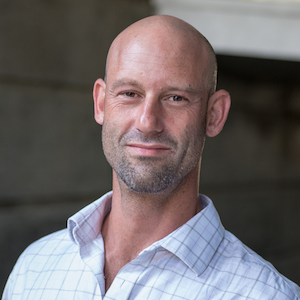Researchers Develop Biometric Tool for Newborn Fingerprinting
New non-touch technology rapidly identifies infants and children
Published Date
By:
- Jackie Carr
Share This:
Article Content
Researchers at the University of California San Diego say they have dramatically advanced the science of biometric identification, creating a novel technology that can capture the fingerprints of infants and children, even on the first day of birth.
“We think we’ve solved the problem of infant identification for both developed and developing countries,” said Eliah Aronoff-Spencer, MD, PhD, assistant professor of medicine, UC San Diego School of Medicine and the Qualcomm Institute at UC San Diego. “This new technology allows for quick, accurate fingerprinting that may eliminate the need for paper identification and improve health care and security for millions.”
Globally, infant and childhood identification is needed for health care delivery, especially in remote or resource-limited areas, as well as for supporting efforts in disaster relief, human trafficking, migration and refugee settlement.
Spencer said other technologists have unsuccessfully attempted to extrapolate adult technologies to fingerprinting children. UC San Diego’s solution was to apply a human-centered design and develop the technology from the ground up with infants, caregivers and stakeholders in mind.
“Accurate identification of a child to enable timely vaccinations can improve care, reduce disease burden and save lives,” said Spencer. “This is just the beginning. Consider the usefulness of health identification to track not only vaccinations, but to aid or prevent infectious disease outbreaks. Consider that a person’s identity can now be secured at birth, potentially protecting from identity fraud many years in the future.
“Imagine the ability to assist refugees displaced by war or natural disasters to establish their identity so they can access needed food, aid and care. While a difficult subject, this technology may have applications to help prevent human trafficking and other causes of separation of children from their families.”
Spencer said the technology was conceived to accommodate the size, movements and behaviors of an infant. “Not only did we take into account the child’s physiology and reflexes, but also what would be culturally acceptable in different countries. For example, in some areas, facial photography is shunned, but photography of hands is acceptable.”
The device, called ION, is a non-contact optical scanning technology that can image fingers and the palm of the hand. Prints are stored as encrypted templates that can be securely shared across platforms. The current device is rugged, portable, fits in the user’s hand and works with laptops and mobile platforms. While the technology was developed to identify infants and young children, it works with high accuracy with adults, making it the first biometric platform for all ages. Enhancements under development include the capability to also measure health biometrics and other clinical data, such as temperature, pulse, breathing and oxygen.

Eliah Aronoff-Spencer, MD, PhD, assistant professor of medicine at UC San Diego School of Medicine and the Qualcomm Institute at UC San Diego.
Institution Review Board-approved clinical trials are currently underway at UC San Diego and with collaborators in Mexico. Preliminary results show that the device delivers greater than 99 percent accuracy on re-identification after registration as early as two days after birth, with 90 percent accuracy for registration on the first day of birth.
“The next stage is to take the device into the field in Africa and South Asia and broaden the populations we evaluate,” said Spencer. “While the device is not yet commercially available, we hope to have it ready for market within 12 months. We want to continue to validate the platform, work through workflow, security and ethical issues, and, with funding, make the technology available on a staged basis to non-governmental organizations and government programs at local and national levels.”
Initial funding for this project came from the Bill and Melinda Gates Foundation. Multidisciplinary team members at UC San Diego included doctors, engineers, designers, public health experts and behavioral scientists. Project contributors from UC San Diego include UC San Diego Health, Calit2/Qualcomm Institute, UC San Diego School of Global Policy and Strategy and The Design Lab.
Share This:
You May Also Like
Stay in the Know
Keep up with all the latest from UC San Diego. Subscribe to the newsletter today.



